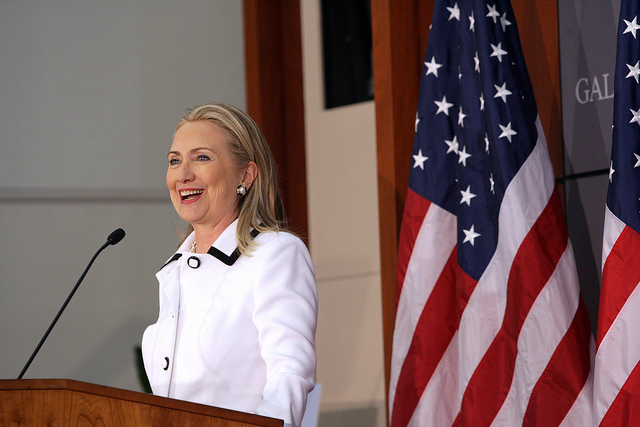As the two most unlikeable presidential candidates in US history go head-to-head in this week’s elections, it is clear that a Clinton or Trump presidency will result in few changes, if any, for the continent of Africa.
Although there is mounting uncertainty about the result of November 8, one thing remains clear to me. Trump’s tax evasion tendencies and Clinton’s philanthro-capitalist shadiness prove that the US lacks the moral authority more than it ever has to lecture Africa on the tenets of “good” governance, transparency, and accountability.
It is safe to say that just as Barack Obama regarded Africa as an afterthought, so too will Clinton or Trump. As Obama clearly demonstrated, regardless of a person’s race, gender, or socioeconomic position, US presidents always protect US interests.
Nowhere is this doctrine more apparent than in my own country, Liberia, where the US corporation Firestone cemented its stronghold in our economy from the 1920s, a Voice of America relay station was built in the 1980s to influence opinions across the continent, and the CIA had a major base for surveillance in Africa. We Africans have sobered up to the reality that “America has no permanent friends or enemies, only interests.”
US militarization in Africa will most likely continue in a Trump or Clinton presidency, with the US Africa Command hovering over insecure areas of the Sahel and the Horn of Africa. Clinton’s unapologetic backing of the 2011 NATO-led military intervention in Libya is an indication of her hawkish support for regime change at all costs, even though the African Union advocated a more measured political solution to that crisis.
Similarly, the US under Clinton or Trump will continue to promote its economic interests through free and unfair trade deals such as the African Growth and Opportunity Act, which allows limited access to US markets for African exports of low-value goods and raw natural resources.
While Clinton’s presidency is likely to be more outward facing and “development-oriented,” with a slight pivot to Africa given the political alliances formed during her tenure as US secretary of state, Trump may shun Africa altogether, given his blatantly racist overtures towards people of color.
A Trump presidency, firmly cemented on the pillars of anti-immigration, anti-women, anti-gays, and anti-intellectualism, may galvanize ultra-conservative leaders in Africa and elsewhere to turn their bigotry and repression up a notch. Yet, there is sure to be a push-back from African citizens.
Despite Obama’s ironic proclamation to the Ghanaian parliament in 2009 that “Africa doesn’t need strongmen; it needs strong institutions,” the US has a long history of supporting “strongmen” such as Blaise Compaore of Burkina Faso, Hosni Mubarak of Egypt, and Meles Zenawi of Ethiopia. Under a Clinton or Trump presidency, the US will probably continue supporting African regimes – authoritarian or otherwise – that facilitate American security and economic interests with impunity.
However, if the “Arab Spring” in Egypt and “Black African Spring” in Burkina Faso are anything to go by, Africans will not tolerate the US’ hard-line stance in this regard.
This article was originally published by Al Jazeera.
Featured photo by Simone D. McCourtie / World Bank



